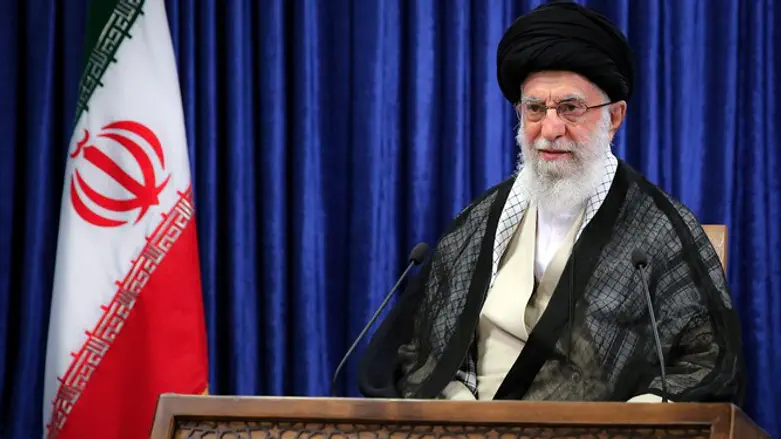
Iran's Supreme Leader Ayatollah Ali Khamenei on Saturday reasserted the Islamic Republic's longstanding ban on competitive sport with Israelis, AFP reports.
"Any Iranian athlete worthy of the name cannot shake hands with a representative of the criminal regime in order to win a medal," Khamenei was quoted as having told a reception for Iran's medallists from the Tokyo 2020 Games.
"The illegitimate, bloodthirsty... Zionist regime tries to win legitimacy by taking part in international sporting events attended by the world arrogance (Washington and the West), and our athletes cannot just stand idly by," he added.
Khamenei instructed "the sports and foreign ministries, as well as the judiciary, to deploy their legal resources to support athletes from this and other Muslim countries, like the Algerian who was recently disciplined."
He was referring to Algerian judoka Fethi Nourine, who withdrew from the Tokyo Games to avoid facing Israeli Tohar Butbul.
The International Judo Federation (IJF) later banned Nourine and his coach from participating in any activities or competitions for ten years.
Iran, which does not have ties with Israel, regularly orders its athletes to withdraw from sporting competitions in order to avoid facing Israelis.
The most famous incident in recent years was that of Iranian judoka Saeid Mollaei, who was forced to throw a match against Israelis, even after the IJF and Iran reached an agreement which stipulates that Iran will no longer boycott competitions against Israelis.
Mollaei later travelled to Germany to begin the process of applying for asylum. He was recognized as a refugee in Germany in November of 2019 and recently won a silver medal at the Tel Aviv Grand Slam, where he represented Mongolia.
In 2010, an Iranian contestant withdrew from a Taekwondo match against Israel’s Gili Haimovitz, who won a gold medal by default.
In 2012, Iranian athletes announced their intention to boycott competitions against Israelis at the London Olympics.
In 2017, two Iranian players were criticized in their home country after they appeared for their Greek club Panionios in a Europa League qualifier against Maccabi Tel Aviv.
The two were initially banned for life from the Iranian national team as a punishment, but Iran appeared to cancel the ban after a huge outcry from soccer fans on social media and the launch of an investigation by FIFA, which has rules against political interference in national teams.